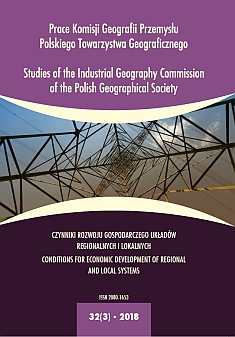Problematyka pracy w badaniach z zakresu turystyki w Polsce w XXI wieku: ewolucja nurtów, paradygmatów i podejść
Labour-Related Issues in Polish Research on Tourism in the 21st Century: Evolution of Trends, Paradigms and Approaches
Author(s): Danuta PirógSubject(s): Labor relations, Transformation Period (1990 - 2010), Present Times (2010 - today), Tourism
Published by: Wydawnictwo Uniwersytetu Komisji Edukacji Narodowej w Krakowie
Keywords: exploratory analysis; job; labour market; paradigm; textual analysis; tourism;
Summary/Abstract: This paper presents results of the literature review from the field of tourism and recreation covering Polish research papers published in the years 2000–2017. The literature review concerns the main issues related to the labour market in tourism economy. This study examines publications in specialist journals, monographs, monograph chapters and a ministerial report on this topic. The aim of the literature review was to establish the evolution of the discussed topics, adopted paradigms and research perspectives. The study was conducted from two points of view, i.e. as a classic textual analysis and as an exploratory analysis performed using Statistica Data Miner software. The analysis indicated that there was a modest but growing number of publications by tourism and recreation specialists and the topics investigated by the researchers were closely related to the changes on the labour market. The subject matter evolved from issues concerning the significance of tourism in boosting demand for labour, the level and structure of demand for specialists in this sector, as well as research focused on the role of employees in efficient operation of tourism enterprises. At the beginning of the 21st century the dominant research trends were based on a positivist paradigm, quantitative structural and functional, as well as economic and spatial analyses. However, these trends were gradually replaced by an interpretative paradigm and humanistic, behavioural, sociological, and interdisciplinary approaches.
Journal: Prace Komisji Geografii Przemysłu Polskiego Towarzystwa Geograficznego
- Issue Year: 32/2018
- Issue No: 3
- Page Range: 263-274
- Page Count: 12
- Language: Polish

